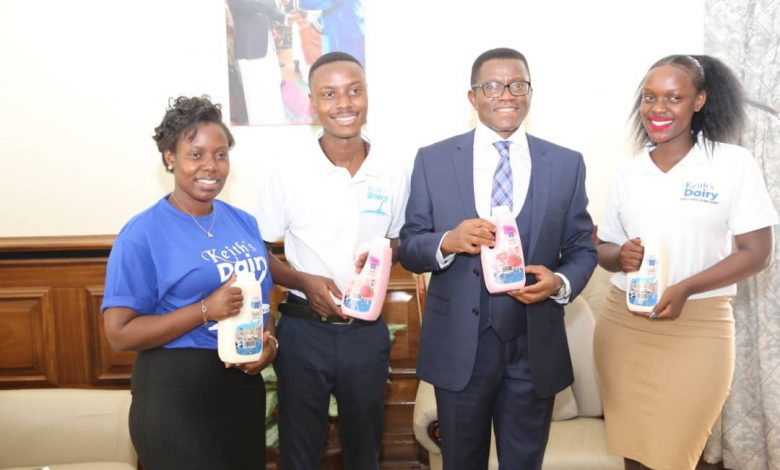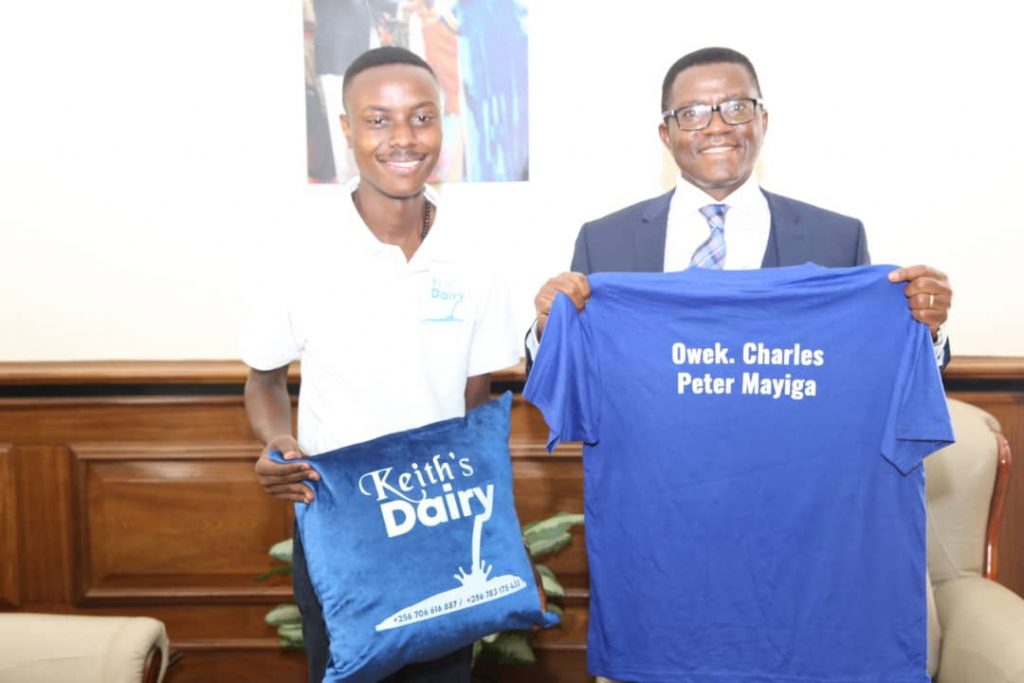
Tebandeke turned his side job into his main source of income
In 2021, youthful Keith Tebandeke Ddungu, a cashier by then realized he could take advantage of the prevailing situation to start a side business to augment his main job.
Having looked around for options, he zeroed in on yoghurt making from the so much available milk.
“I realized milk is not a problem in Uganda. It is also affordable. I realized I could never go wrong with yoghurt since there was plenty of milk. Secondly, yogurt is consumed by almost everyone – babies, old, young, sick and healthy. Importantly, you can take yogurt and forego a meal,” Tebandeke recalls his journey.
The 23-year-old says that by the time he thought of this business, he was armed with Shs 3 million which was savings from his main job as a cashier.
“I used the money to buy milk, packaging materials and rent. I was then ready to go.”
He explains that whereas he had a few tips on how to make yoghurt, he decided to employ a few people to help him out.
Keith Dairies was born.
“I put the business at Wandegeya where I was assured of many people, including university students and this gamble paid off. I also had to tap into my social media following to advertise my yoghurt,” he says.
Resigns from job
Tebandeke says that whereas in the initial stages things didn’t move well, the company later stabilized and he employed more people to help him out.
Each morning, he passed by his business to check if things were okay before proceeding to his day job.
He also stepped out during lunch breaks to check on how the day was going at his business.
“In any business, you can’t supervise on phone. There are things that need you as an individual because it’s only you who knows how things should be,” Tebandeke says.
In March 2022, Tebandeke lost his job after being forced to resign by his supervisor.
“My boss knew that I had a small job (side business that was doing well). He later maneuvered and forced me into resigning,” he says.
He however says this was a blessing in disguise for him since he now got more time to supervise his business but also enabled its growth since he had all the time he wanted.
“I am now here 24/7,” Tebandeke says.
He explains that with time, the business continued to grow, adding that currently, on good day, he is able to buy between 500 and 600 litres of milk.
He says 600 litres of milk makes about five 50-litre jerrycans of yogurt, adding that this is then packed in 1 litre, 2 litre, 5 litre, 300ml and 500ml containers including bottles and sachets for sale.
“We then distribute to local supermarkets in Rubaga where the business is located and other nearby suburbs of Kampala,” he says, adding that at the end of the month, he grosses at least Shs 2.8 million (before expenses).
He says he has never regretted leaving his cashier job to venture into yoghurt making, noting that despite the meager earnings, he is assured that with time, this will eventually grow.

Rent still a challenge
He says whereas the business makes some good money, a large portion of it goes into rent and this means he retains little cash.
Tebandeke says he pays up to Shs 1.2 million in rent per month yet the land lord requires that he pays three months upfront every time he is paying.
He says that some shops had allowed him display his products at their premises but says this also means he must have a fridge to keep the yoghurt frozen.
“I can’t manage because one fridge alone is at least shs1.2 million. This is still a tall order for me.”
“My yoghurt is sought after by many but I am limited in terms of capacity due to lack of funds. At least Shs 30 million would push me far,” he says.
The additional funding, Tebandeke says would go into buying up to date machines, coolers and other key components of the business.
Advice.
He says whereas he was a bit lucky that his business picked up quickly, it is not the same story for every start up.
“You won’t start a business and it picks up tomorrow. You must be so lucky for it to work out immediately. But I was lucky because much as there was still the Covid-19 situation, we were also going into the festive season. This is why my business picked up quickly. However, this doesn’t mean every business will pick up quickly. You have to be patient.”
He says his company has ventured into skilling young people within and outside Kampala.
For instance, Tebandeke says he and his team skilled students of Arua Secondary School in West Nile as well as university students within Kampala in yoghurt making.
“The most important tool for anyone is the skill. Once you have the skill, you can survive anywhere and that’s why we will continue to skill particularly the young people,” says Tebandeke.



